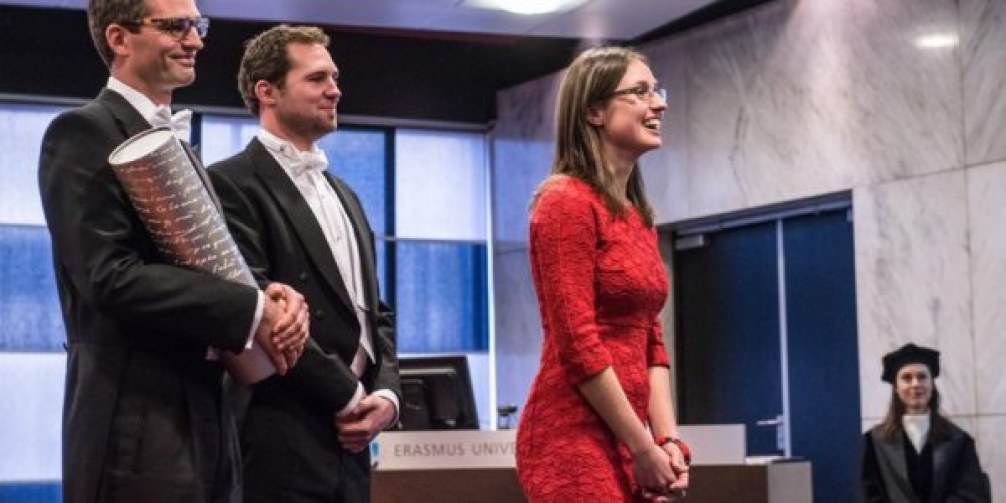Letters from Alumni: Sanne Blauw

I remember the exact moment that I decided to write for a living. It was August 24, 2014— and I was watching the television show Zomergasten. David van Reybrouck, writer of the epic non-fiction book Congo, was being interviewed for three hours. By the time the credits appeared, I had made my decision: I’m becoming a journalist.
Van Reybrouck told the interviewer that—having obtained a PhD degree in archaeology—he had decided to leave university to devote his life to writing. Seeing him on television was the final push I needed to decide that I would leave academia as well.
That same summer, I finished my dissertation. After studying econometrics at Erasmus, I started my PhD in 2011 at Tinbergen Institute. Great adventures ensued: I worked at the OECD in Paris, collected data in Bolivia, and attended conferences worldwide.
Meanwhile, I developed a firm base in the Netherlands. Even though I had not done the MPhil at TI, I was warmly welcomed into the TI family. While wildly diverse, my new TI friends all seemed to fulfil two prerequisites: incredibly fun and extremely intelligent.
Speaking of wildly diverse, my research broadened its scope quite a bit during my TI years. In a nutshell: I wrote about mobile telephones in Uganda, happiness in Bolivia, contagion effects in a sorority, and the relationship between inequality and trust.
Not surprisingly, my supervisor proclaimed at my defence: ‘If you want to stay in academia, you really need to specialize!’ He was right, of course, but specialization has never been my…er… specialization.
I discovered that I wanted quite the opposite: I wanted to broaden my scope. In terms of methodology, I wanted to include philosophical and sociological insights in my work, use my personal experiences and draw inspiration from literature. But also in terms of topic, I was interested in a broad range of issues, sometimes too large to deal with in an academic paper.
I started working at De Correspondent—a Dutch online journalism platform that also features van Reybrouck’s work. De Correspondent is not your average media outlet: it focuses on the kinds of stories that tend to evade the radar of the mainstream media because they do not conform to what is normally understood to be news. The emphasis is thus on context, analysis and investigative reporting.
I see this job as the golden medium between academia and journalism. I can widen the scope of my writing, while still being able to dig deep into a topic. My articles deal with data, statistics and the role of quantitative information in society.
Having left academia doesn’t mean that I have shed all my academic feathers. My PhD experience has proven indispensable. I could not have written about statistics had I not attended the high quality econometrics courses at TI. I could not have criticized the societal obsession with quantifi cation had I not collected my own data for my PhD projects.
When David van Reybrouck showed me how to venture beyond the limits of the academic world, TI had already taught me the wonders inside it.